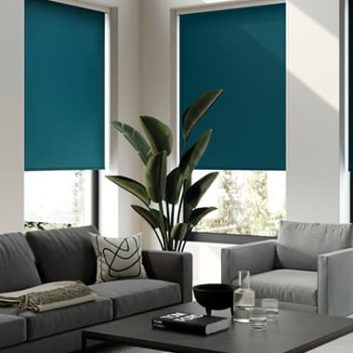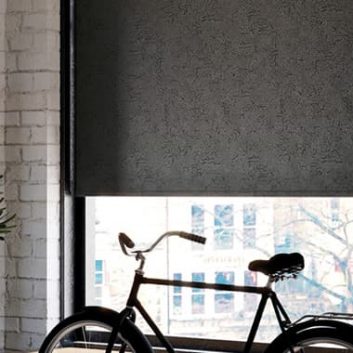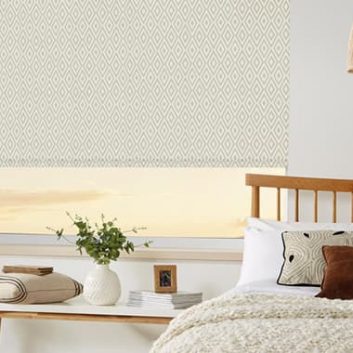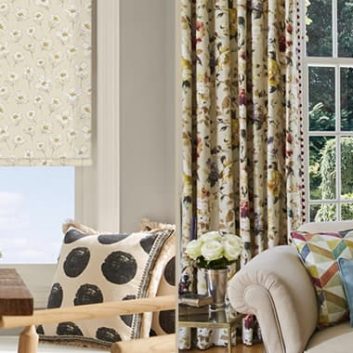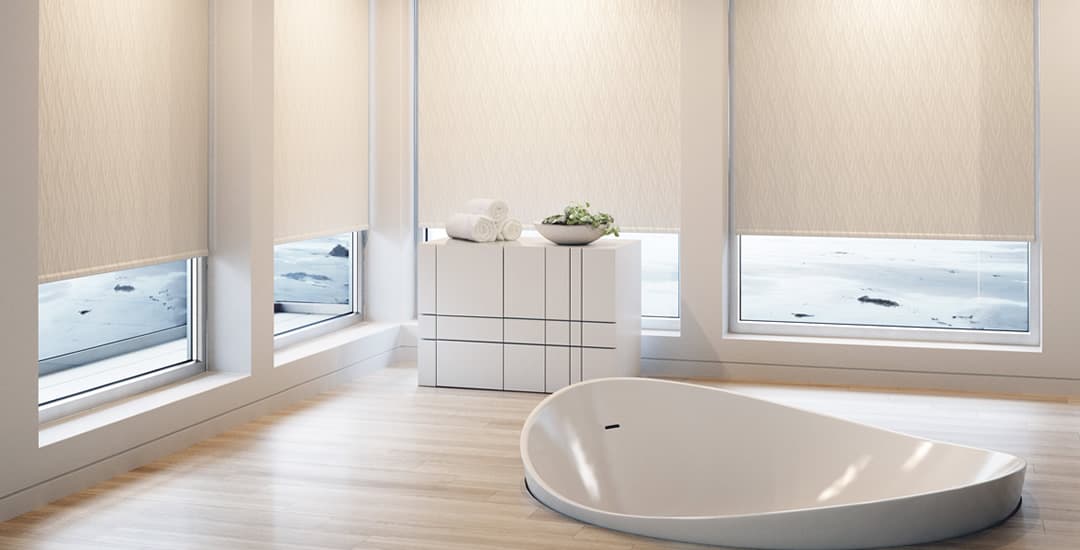
Are blackout blinds waterproof? This depends on what they’re made of, and so some blackout blinds are waterproof and some are not.
For someone like me who works with blinds (or more specifically, spends a large number of my working hours watching other people work with them) it can be easy to forget that not everyone is aware that “blackout” refers to the properties of a blind, not a type of blind; types being things like roller blinds, vertical blinds, and Roman blinds, all of which work in different ways and have different traits.
Any type or style of fabric blind can theoretically be made to be a blackout blind, and so whether or not it is waterproof too depends on what it’s made of.
This blog post will offer a roundup of the most common and popular types of blinds, and answer the question of “are blackout blinds waterproof” for each of them.
Are blackout roller blinds waterproof?
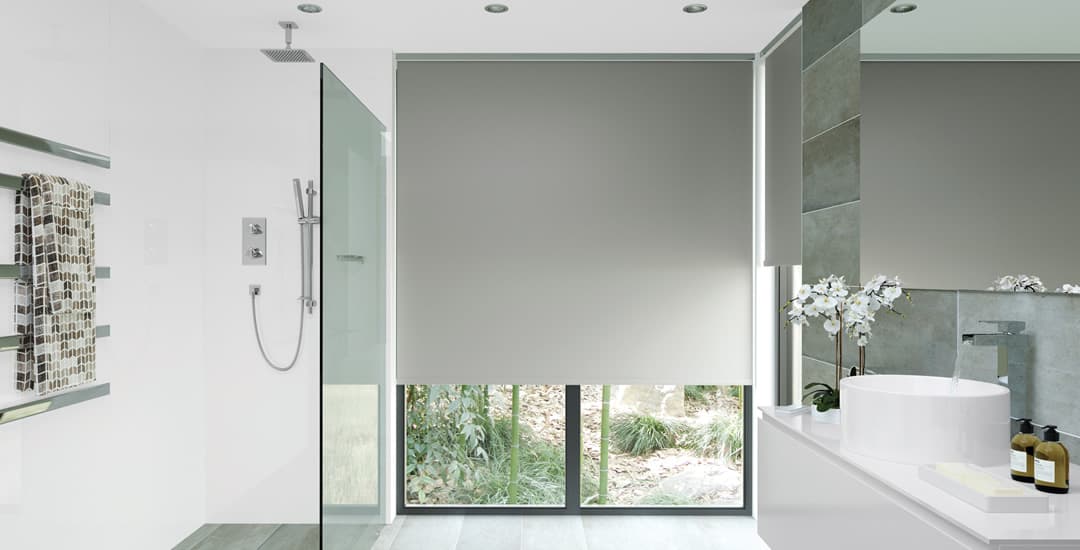
To further compound the complexity of the “are blackout roller blinds waterproof” question, there is more than one type of blackout roller blind (and more than one type of roller blind per se if you’re intereste-nope, ok let’s move on).
The most popular type of blackout roller blinds are made of polyester for the main body of the blind (the bit you see from inside and care about the colour and finish of) with a special blackout coating on the back of it.
Is this type of blackout roller blind waterproof? Not so much. Polyester blackout roller blinds are for bedrooms, lounges, and other “not that likely to see a lot of water flying about” rooms, but not for your kitchen, bathroom, or sauna. You do have a sauna, right?
Polyester blackout roller blinds can handle a small and infrequent amount of contact with water or humidity in the air, but “can handle a small and infrequent amount of contact with water or humidity in the air” wouldn’t sell you a winter coat, and it shouldn’t sell you a roller blind for a damp or wet environment either.
Your other flavours of roller blind, on the other hand, are either PVC or vinyl, and these are the bad boys you want in your corner when the water balloon fight breaks out. PVC and vinyl blackout roller blinds are waterproof blinds designed specifically for kitchens, bathrooms, and your personal spa. You do have a personal spa, right? (Note to self, maybe stop reading the glossy magazines at lunchtime.)
Vinyl or PVC blackout roller blinds are waterproof. Polyester ones are not.
Are blackout vertical blinds waterproof?
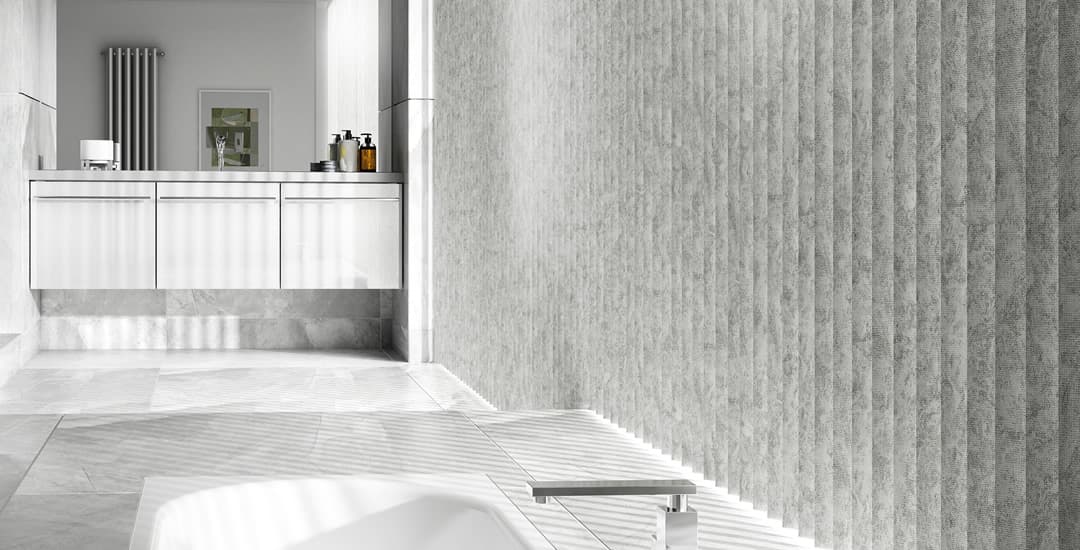
Vertical blinds are similar to roller blinds in exactly zero respects, other than the “covering your windows” one. They look different, work differently, and have different applications in terms of the type of jobs they’re qualified for (like filtering light rather than blocking or not-blocking it based on the blind’s open/closed status).
Are blackout vertical blinds waterproof? Ok wait, “similar to rollers in two respects.” Blackout vertical blinds can either be made of polyester (not waterproof) or PVC or vinyl (definitely waterproof).
Like blackout roller blinds then, blackout vertical blinds made of PVC or vinyl are waterproof, while those made of polyester, much like young children, are not to be trusted around water.
Are blackout Roman blinds waterproof?
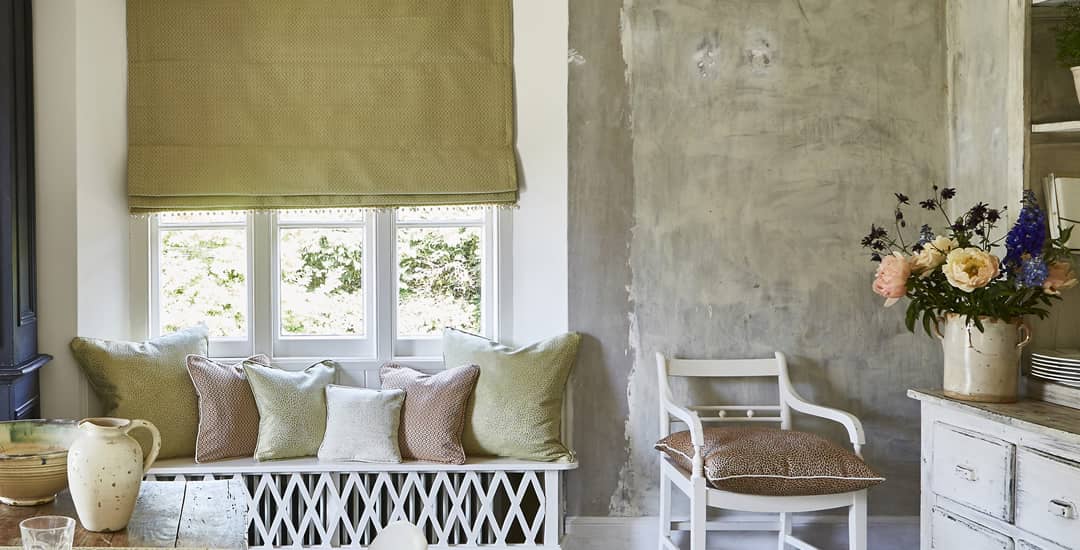
Roman blinds are blinds royalty; both in that they’ve got an excellent pedigree and are synonymous with money, and that they can be demanding and finnicky little princesses in practical terms too.
Roman blinds are made of soft, premium fabrics, some of which are delicate, intricate, or finely detailed. Generally, the fabric used for Roman blinds itself doesn’t have inherent blackout traits, but once more, they’re commonly made with a blackout lining on the non-customer-facing side, enabling them to preserve your retinas when it gets light.
So, are blackout Roman blinds waterproof? Generally not. Roman blind fabrics themselves are not waterproof, and unlike say, clothes made of the same or similar fabrics, they’re not designed to be washed and dried.
Roman blinds that get wet or damp don’t tend to get dried out properly with the appropriate combination of warmth and air movement, even when it comes to Roman blind fabrics that could theoretically be washed, which is by no means all of them.
This means that blackout Roman blinds aren’t waterproof as an almost-without-exception rule, and regular or prolonged exposure to damp or moisture is apt to result in the growth of mould and/or mildew and the correlating funky smell that usually accompanies this.
Are other types of blackout blinds waterproof?
Venetian blinds, faux wood blinds, and real wood blinds can theoretically be used as blackout blinds, albeit there are some caveats and limitations to this, more pertaining to how they’re hung in many cases than the materials they’re made of. This is probably self-evident as aluminium, wood, and faux-wood respectively aren’t renowned for being particularly see-through. Although the small holes in the slats where the cords run, will let light in. You can mitigate this to some degree by opting for a blind with tapes rather than cords.
So while the “are blackout blinds waterproof” question doesn’t tend to come up on the regular for blinds of these types as they’re not what we tend to think of or sell in large numbers for blackout applications, I’ll cover the whole waterproofing issue in the interests of being thorough to finish us off.
Faux wood blinds are waterproof, real wood blinds are not waterproof, and Venetian (aluminium) blinds are waterproof. Blackout status depending on the vagaries of how they’re hung and also whether they have tapes or cords.

